
The President’s Message:
Best wishes for a happy and healthy New Year.
As we settle in our new meeting room, we look forward to a year
of interesting programs.
Your dues make these presentations possible.
Dues are due in January.
During the Civil War new recruits more than likely
experienced four things for the very first time.
One of them was playing baseball.
Adam Katz will present a fascinating program at the January 8th meeting on the
importance of baseball during the Civil War.
January 8, 2020 Program:
In this presentation, Adam Katz will discuss the
strong presence of baseball during the Civil War.
He will show the passion Abraham Lincoln had for the game.
The audience will see how intertwined baseball was for the
soldiers and their Civil War experience.
Adam will illustrate that while the war was going on, the home
front still craved news on not only how their hometown heroes were doing
on the battlefield, but on the ballfield as well.
Just because the baseball season stopped, didn't mean the
baseball competition ended.
December 11, 2019 Program:
Grog, the most famous drink afloat.
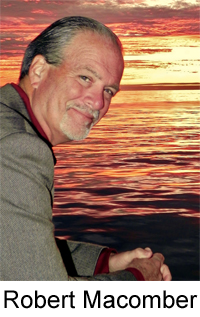 For
the 17th time, Robert
Macomber treated our Round Table to a great presentation.
He said this “horse” was his favorite steed in his stable of
maritime yarns. That is
because he gets to drink rum while delivering the sermon.
Alas, the mighty hammer of the Town of Lake Clarke Shores, FL
pounded that concept into oblivion as the chambers where we hold our
meetings is dry. So, as you
will soon learn, the strongest drink Bob, or any of us, had that night
was a “cup of Joe.” It came
with special dispensations, however.
According to naval traditions, anyone who toasts with water will
be cursed to an early death by drowning.
Macomber’s blessing insolated us from that terrible fate. For
the 17th time, Robert
Macomber treated our Round Table to a great presentation.
He said this “horse” was his favorite steed in his stable of
maritime yarns. That is
because he gets to drink rum while delivering the sermon.
Alas, the mighty hammer of the Town of Lake Clarke Shores, FL
pounded that concept into oblivion as the chambers where we hold our
meetings is dry. So, as you
will soon learn, the strongest drink Bob, or any of us, had that night
was a “cup of Joe.” It came
with special dispensations, however.
According to naval traditions, anyone who toasts with water will
be cursed to an early death by drowning.
Macomber’s blessing insolated us from that terrible fate.
The talk opened with a notation about the “darkest day in the American
Civil War.” Without
explanation, Bob moved on to promise us he would impart some “very
valuable life skills.” After
hearing this presentation, any of you will be able to hold your head up
high in any waterfront tavern when surrounded by men (and women) who go
down to the sea in ships.
Here is the story of Grog and the “Mother” navy, which is the Royal
Navy. And, no telling of
this tale would be complete without the daily toasts that accompany the
lifting of the glass.
Before the first toast, we learned that historically true grog is 90%
alcohol (180 proof) cut 1:3 with water.
Water, as you will soon learn, is that nasty stuff found in casks
that have spent weeks at a time at sea under the tropical sun.
The original daily rum ration was two gills or half a pint.
With that technical detail out of the way, Robert proposed the
first toast: “To the Queen, God Bless her.”
Let’s turn back the clock and look at the ye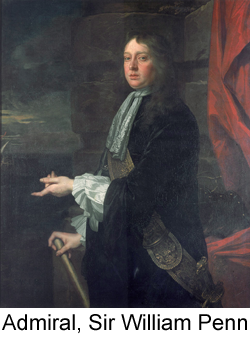 ar 1655.
The English Civil War is over, and the forces of Parliament have
won. Oliver Cromwell sends
Admiral, Sir William Penn, to the Caribbean in search of Spanish
treasure. Cromwell has been
sending potential counter-revolutionaries both in the army and the navy
far away, and Penn fits his plan.
Defeated at Santo Domingo, Penn has better luck in Jamaica.
There is nothing to plunder there, but the admiral and his crew
find something far better than gin, wine, or beer with which to mask the
taste of foul “fresh” water.
Let them drink rum! Penn,
not to be confused with his famous son who founded Philadelphia, was no
teetotaler. In fact, he is
the founder of the “rum culture.” ar 1655.
The English Civil War is over, and the forces of Parliament have
won. Oliver Cromwell sends
Admiral, Sir William Penn, to the Caribbean in search of Spanish
treasure. Cromwell has been
sending potential counter-revolutionaries both in the army and the navy
far away, and Penn fits his plan.
Defeated at Santo Domingo, Penn has better luck in Jamaica.
There is nothing to plunder there, but the admiral and his crew
find something far better than gin, wine, or beer with which to mask the
taste of foul “fresh” water.
Let them drink rum! Penn,
not to be confused with his famous son who founded Philadelphia, was no
teetotaler. In fact, he is
the founder of the “rum culture.”
We now reached the first of the daily toasts.
These were done in the wardroom by the officers.
We will discuss the dispensing of rum to the crew shortly.
The toast for Monday is: “To our Ship.”
That was how the brass drank their libation.
For the crew, it was a daily issue of the half-pint & water in a
less formal setting. But did
they like it? Yes, they did.
In fact, it was the high point of their day.
Did wolfing down 180 proof tots of rum lead to good seamanship
and good discipline?
Probably not. But, for
eighty years everybody was happy.
Crews onboard the ships of the Royal Navy were a bunch of
alcoholics. It was so bad
that misbehaving seamen would rather have been lashed then to have their
rum ration withheld.
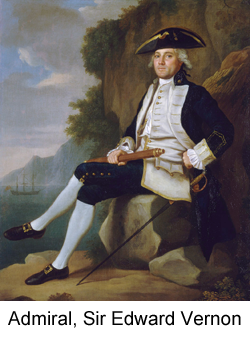 So, the scene was set for a major change in 1741.
On to the stage strode one Admiral, Sir Edward Vernon, “Old
Grog.” He received that
moniker because he wore a nasty foul weather coat that smelled as bad as
the “fresh” water. The coat,
made of grogram cloth, led to the name of the garment, the admiral, and
soon to the drink. England
was at war again, and his mission was to take a fleet to capture
Cartagena, now a port in Columbia.
To occupy the port, the ships of the fleet held army troops, many
of them from the colonies.
One group of American Colonials was under the command of Lawrence
Washington, half-brother to George.
Lawrence became good friends with Vernon such that after the war,
he named his estate Mt. Vernon after his old commander.
When George Washington inherited the estate, he kept the name. So, the scene was set for a major change in 1741.
On to the stage strode one Admiral, Sir Edward Vernon, “Old
Grog.” He received that
moniker because he wore a nasty foul weather coat that smelled as bad as
the “fresh” water. The coat,
made of grogram cloth, led to the name of the garment, the admiral, and
soon to the drink. England
was at war again, and his mission was to take a fleet to capture
Cartagena, now a port in Columbia.
To occupy the port, the ships of the fleet held army troops, many
of them from the colonies.
One group of American Colonials was under the command of Lawrence
Washington, half-brother to George.
Lawrence became good friends with Vernon such that after the war,
he named his estate Mt. Vernon after his old commander.
When George Washington inherited the estate, he kept the name.
The drink inherited Vernon’s nickname, too, when he changed the ration.
Vernon commanded that the rum ration be further diluted to 1:4
and issued half the amount twice a day.
The boys were not amused.
Our captain Macomber decided the time was right for another
toast, so he instructed us with the Tuesday glass: “To our Ship.”
Too bad, we did not have the real stuff.
When I got home, I reached for the Pusser’s Rum, a supply of
which is always close at hand.
Now the Brits are fighting Napoleon, and the Royal Navy is hard-pressed
for man-power. What to do?
We’ll just pick them up off the streets using “press gangs.”
England wanted to stay out of the French revolution, but in 1793
it had no choice when France declared war.
This fight at sea continued until Trafalgar in 1805.
In the middle of this mess, the Navy discovered that lime juice
prevented scurvy. Not
wanting to suck on limes, old jack tar resisted change by ignoring the
orders. The sneaky officers
“tainted” the rum ration with lime juice.
That stopped the protest cold; the Brits became as Limeys from
that point on. About this
time, the temperance movement was getting underway.
Some men refused their issue, and instead, established a banking
system with grog as the coin of the realm.
The denominations were the “sip,” “gulp,” and the “sandy bottom.”
With the smallest amount, you could only wet your upper lip.
The next one, you got a big gulp, and of course, the big score
was you could drain the glass to the sandy bottom.
Grog was not only withheld as punishment but also used as a reward.
Hard work, like splicing the main brace, gained you a double
issue for a job well done.
“Sailing due north” meant no grog.
“Sailing south” delivered one-and-one-half rations of the good
stuff. Volunteering for
hazardous duty, like in a World War I submarine, earned you double issue
if you lived to enjoy it.
Early in World War II, rum took another hit.
It was a real blow purposely inflicted by the Luftwaffe.
On Saturday, 7th September 1940, those sneaky Huns bombed the
Surrey Commercial Docks. The
rum quay buildings of the West India Docks were alighted from end to end
and gushed blazing spirit from their doors.
An emergency call went out for any firm that could supply this
vital war supply. And who do
you think answered the call?
Why the Bacardi Company of Cuba offered to save Britannia.
While the firm needed to cobble together several distilleries in
the Caribbean, they delivered!
One of these smaller operations, Pusser’s got their start with
the Royal Navy thanks to the German Air Force.
Ultimately, Pusser’s became the official supplier to the Royal
Navy.
While speaking of trade, Bob pointed out that the US Navy was dry, and
the Royal Navy lacked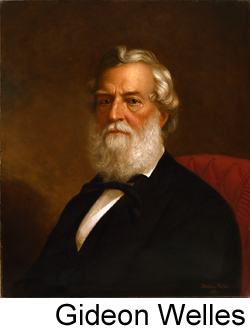 ice cream and laundry services.
Higher levels of command discussed concepts like lend-lease and
convoy operations; low-level trade was conducted between ships by the
seamen. Rum for ice cream
and laundry services took place at sea.
Time for another toast.
The toast for Wednesday is: “To ourselves, as no one else is
likely to concern themselves with us.”
This toast was an expression that the folks in command and the
citizens back home did not think much about the boys at sea unless there
is a national emergency. ice cream and laundry services.
Higher levels of command discussed concepts like lend-lease and
convoy operations; low-level trade was conducted between ships by the
seamen. Rum for ice cream
and laundry services took place at sea.
Time for another toast.
The toast for Wednesday is: “To ourselves, as no one else is
likely to concern themselves with us.”
This toast was an expression that the folks in command and the
citizens back home did not think much about the boys at sea unless there
is a national emergency.
The next insult against rum came on “Black Tot Thursday.”
Late in the year 1969, a Member of Parliament came aboard a ship
of the Royal Navy docked in Plymouth.
The MP asked a junior officer, “does this ship carry nuclear
weapons?” When the officer
answered in the affirmative, the lawmaker returned to his post to begin
the “rum debate.” That
discussion lasted six months, and in spite of the best efforts of Mr.
James Wellbeloved, a motion to end the rum ration passed.
July 31, 1970, was the final day of the rum ration, and it was
poured, as usual, at six bells in the forenoon watch after the pipe of
"up spirits." People
attended a funeral for a cask of rum!
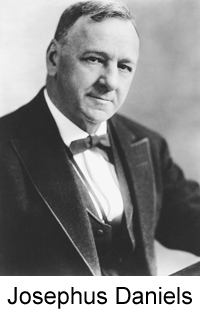 After that sad passage in our saga, Bob felt it was necessary to give
the Thursday toast. It was,
after all, Thursday so: “A bloody war or a sickly season!”
Promotion came slowly if there is no war going on.
You can rise through the ranks if those above you die suddenly.
Promotion goes a long way towards explaining why this toast was
popular with the young officers.
Given Bob’s talk was given at our Civil War Round Table, he took
a tack back to the US Navy.
During the dark days of the Union Navy in 1862, the Secretary of the
Navy Gideon Welles decided to make things worse.
He ended the rum ration for us, honestly believing the sailors
would not mind. They did,
but there was little they could do about it.
The final blow to demon rum stateside came from Josephus Daniels.
Daniels was Secretary of the Navy under President Woodrow Wilson.
Looking to impose stricter moral standards on naval life, he made
changes like increasing the number of chaplains, cracking down on
prostitution at naval bases, and banning alcohol on the base and within
an exclusion zone extending out five miles.
To this day, his alternative drink, coffee, is known as a “cup of
Joe.” After that sad passage in our saga, Bob felt it was necessary to give
the Thursday toast. It was,
after all, Thursday so: “A bloody war or a sickly season!”
Promotion came slowly if there is no war going on.
You can rise through the ranks if those above you die suddenly.
Promotion goes a long way towards explaining why this toast was
popular with the young officers.
Given Bob’s talk was given at our Civil War Round Table, he took
a tack back to the US Navy.
During the dark days of the Union Navy in 1862, the Secretary of the
Navy Gideon Welles decided to make things worse.
He ended the rum ration for us, honestly believing the sailors
would not mind. They did,
but there was little they could do about it.
The final blow to demon rum stateside came from Josephus Daniels.
Daniels was Secretary of the Navy under President Woodrow Wilson.
Looking to impose stricter moral standards on naval life, he made
changes like increasing the number of chaplains, cracking down on
prostitution at naval bases, and banning alcohol on the base and within
an exclusion zone extending out five miles.
To this day, his alternative drink, coffee, is known as a “cup of
Joe.”
Well, we needed our Friday toast, which is: “A willing
foe and sea room to fight him.”
Before we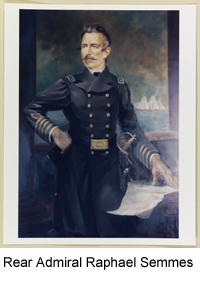 ended, I got to play a bit part in support of the
Saturday toast. It was
responsive reading in the church of the wardroom.
The senior officer raised his glass and said: “To our wives and
sweethearts…” And I, in the
supporting role of a junior officer, rejoined: “may they never meet!”
After giving the anticlimactic Sunday toast: “To absent
companions and those still at sea…” Robert talked a little about the
famous Confederate, Rear Admiral Raphael Semmes.
From the picture, you can see why he was known as “Old Bee’s
Wax.” His contribution to
the toasting hall of fame was: “Here’s to the Ships of our Navy, and
here’s to the Ladies of our Land…
May the Former be Well-Rigged, and the Latter be Well-Manned!” ended, I got to play a bit part in support of the
Saturday toast. It was
responsive reading in the church of the wardroom.
The senior officer raised his glass and said: “To our wives and
sweethearts…” And I, in the
supporting role of a junior officer, rejoined: “may they never meet!”
After giving the anticlimactic Sunday toast: “To absent
companions and those still at sea…” Robert talked a little about the
famous Confederate, Rear Admiral Raphael Semmes.
From the picture, you can see why he was known as “Old Bee’s
Wax.” His contribution to
the toasting hall of fame was: “Here’s to the Ships of our Navy, and
here’s to the Ladies of our Land…
May the Former be Well-Rigged, and the Latter be Well-Manned!”
Last changed: 12/31/19 |

